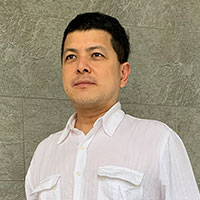KYOTO: In the afternoon of Feb. 21, 1972 — over half a century ago — Henry Kissinger was a happy man. In photographs, the then United States national security adviser, seated to the immediate left of his boss, President Richard Nixon, was seen slouching on the left side of the sofa in the book-lined study of none other than Chairman Mao Zedong, and gazing smilingly and admiringly across from him to the evidently pleasant exchanges between Mao and Nixon in their historic summit.
There were ample reasons — both public and private — for Kissinger to be happy. On the larger scale of things, the first ever summit between the world's most prominent capitalist country and the most populous communist country was the culmination of months of secretive hard work arranged primarily between Kissinger and his Chinese counterpart, Premier Chou Enlai. The year previous, Kissinger famously had to feign bowel discomfort to have a stretched layover in Pakistan over his busy travel schedule, and surreptitiously flew into China for the preliminary negotiations to lay the groundwork for the Sino-American summit. The capitalist and communist camps were then engaged in the Cold War, but the Americans perceived a cleavage in the communist camp between the Soviet Union and China. So Nixon and Kissinger decided to reach out to China in order to counterbalance the Soviets. And the Chinese, out of their own national interest, decided to reciprocate. And so Kissinger's secret missions and the summit all bore strategic fruit.
Continue reading with one of these options:
Ad-free access
P 80 per month
(billed annually at P 960)
- Unlimited ad-free access to website articles
- Limited offer: Subscribe today and get digital edition access for free (accessible with up to 3 devices)


